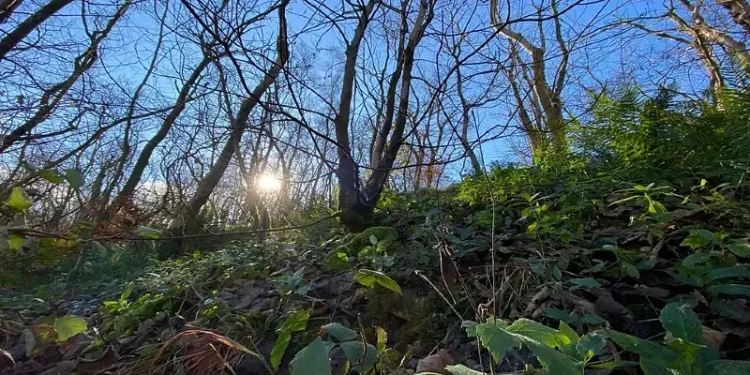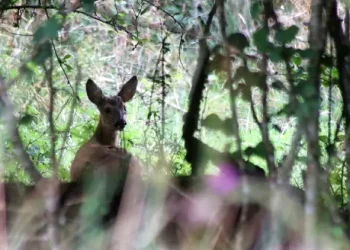The LIFE in the Ravines project has planted 84,000 native trees in the Peak District Dales SAC to restore woodlands devastated by ash dieback, protecting rare ecosystems and biodiversity.
This EU-funded initiative focuses on reestablishing foundation tree species like lime and wych elm in limestone ravines.
Restoration of Peak District Ravine Woodlands
The LIFE in the Ravines project has embarked on a significant ecological restoration by planting 84,000 native trees across the Peak District Dales SAC. This initiative aims to combat the severe impacts of ash dieback, a disease that threatens the survival of ash trees and, consequently, the biodiversity dependent on these woodlands.
By focusing on native species such as lime and wych elm, the project seeks to restore 25% of the region’s most threatened woodlands to their pre-disease diversity, ensuring the resilience of these habitats against future ecological threats.
Community and Ecological Benefits
The restoration project not only preserves the natural landscape but also ensures continued recreational access for the public. Protecting these areas helps maintain water sources and provides habitats for rare species like the redstarts, enhancing biodiversity and ecological health.
Moreover, the initiative fosters strong community ties through partnerships with local authorities and organizations, including Natural England and the National Trust, which play crucial roles in the project’s execution and outreach.
Historical Context and Ongoing Efforts
The LIFE in the Ravines project follows an initial phase where 31,000 trees were planted in 2023. The ongoing efforts include a planned planting phase in autumn 2025, focusing on areas most affected by ash dieback. These efforts build on the lessons learned from previous reforestation activities, which involved overcoming challenges posed by the rugged terrain of limestone ravines.
This strategic approach to planting is informed by risk surveys that prioritize sites based on their ecological needs and vulnerability, ensuring that the restoration efforts are both effective and sustainable.
Technological Innovations in Conservation
The project employs bespoke tools designed specifically for the challenging conditions of limestone ravines. These tools facilitate the planting of trees in difficult terrains, demonstrating an innovative approach to ecological restoration.
This technological advancement not only aids in the efficient restoration of the woodlands but also serves as a testament to the project’s commitment to overcoming the unique challenges posed by the landscape.
Detailed Insights from the Restoration Effort
| Category | Detail |
|---|---|
| Total Trees Planted | 84,000 native trees |
| Key Species | Lime, Wych Elm |
| Project Funding | EU LIFE Programme |
| Area Restored | 25% of Peak District Dales Woodlands |
| Project Partners | Natural England, National Trust, Wildlife Trusts |
| Focus on Biodiversity | Protects habitats for species like redstarts |
Exploring New Paths for Community Involvement and Growth
Looking ahead, the LIFE in the Ravines project plans to continue its efforts with more tree plantings and the maintenance of restored areas. These actions are crucial for the long-term sustainability of the woodlands and the overall ecological health of the region.
Community engagement remains a cornerstone of the project, with educational events and initiatives planned to foster a deeper connection between the local population and their natural heritage. These activities aim to inspire ongoing stewardship and appreciation of the restored landscapes.
Challenges and Adaptation Strategies
While the project has made significant strides, challenges such as the need for ongoing maintenance and the protection of young saplings from grazing remain. The team continues to develop strategies to mitigate these issues, ensuring the resilience of the woodlands against future threats.
The use of disease-free ash and the collection of seeds for future plantings are part of a broader strategy to maintain biodiversity and adapt to changing environmental conditions, securing the legacy of the project for future generations.
Additional Reading
Sources: UK Government News, Natural England Blog, and Forestry Commission Blog.
Prepared by Ivan Alexander Golden, Founder of THX News™, an independent news organization delivering timely insights from global official sources. Combines AI-analyzed research with human-edited accuracy and context.









